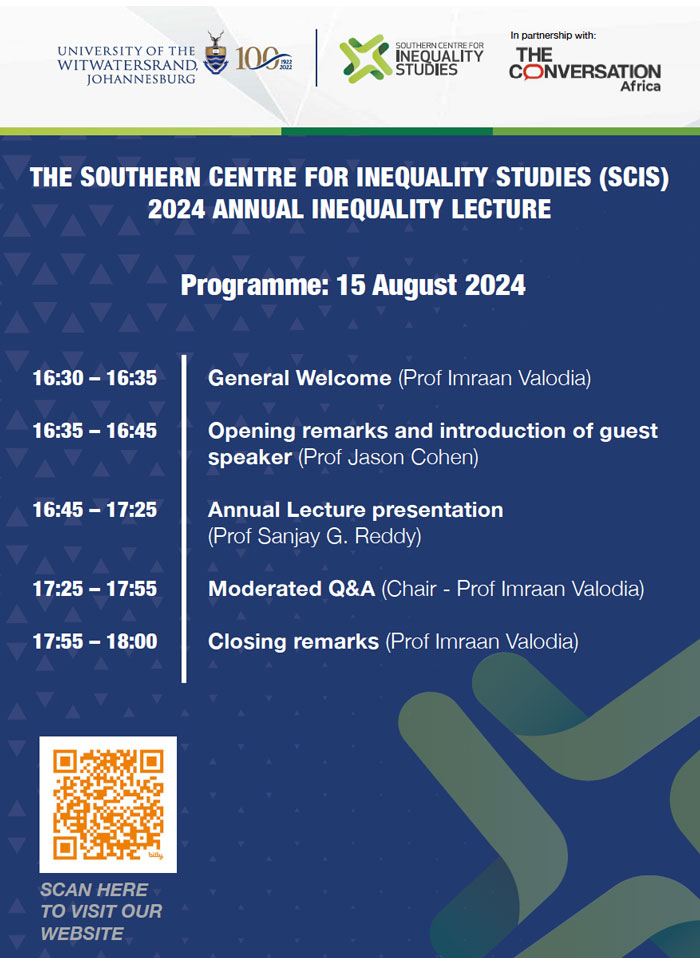SCIS Annual Inequality Lecture | The Political Economy of Global Inequality: A Drama in Three Parts
| When: | Thursday, 15 August 2024 - Thursday, 15 August 2024 |
| Where: | Hybrid Event Donald Gordon Auditorium, Parktown Management Campus, 2 St David's Place, Parktown, Johannesburg, 2193 |
| Start time: | 16:30 |
| Enquiries: |
|
| RSVP: | To attend online, register here. In-person attendance details: Register here For catering purposes RSVP by 12 August 2024
|
| Cost: | Free but registration is required |
SCIS invites you to the Inequality Lecture to be presented by Prof Sanjay G. Reddy titled The Political Economy of Global Inequality: A Drama in Three Parts
The Southern Centre for Inequality Studies invites you to its Annual Inequality Lecture. Professor Sanjay G. Reddy will present the 2024 lecture titled The Political Economy of Global Inequality: A Drama in Three Parts, on 15 August 2024, 16:30 - 18:00 (SAST).
The first part of the drama involves the deep history of global inequality, including factors such as markets, institutions, technology, and force. Although the role of different factors is debated, we should view this history in terms of political economy and not just economics – in other words, political factors are essential to understanding how we got here. The second part is that which we have been experiencing in recent decades. This period was shaped by the creation of a global institutional legal order through which trade and capital flows could greatly expand, a growing role for finance, economies of scale generated by technology and globalization, and entrenchment of private property rights in new forms. While some of these developments were inequality decreasing many were inequality increasing contrary to the predictions of many mainstream economists. The third part of the drama has yet to be written. We are the actors in this drama and can choose our lines.
About the speaker:
Sanjay G. Reddy is a Professor of Economics at the New School for Social Research in New York. His work has been centrally concerned with inequality within and between countries -- studying unequal outcomes, how they are produced in the interaction of economic, political, and social forces, and how they might be addressed.
Programme

 Add event to calendar
Add event to calendar

